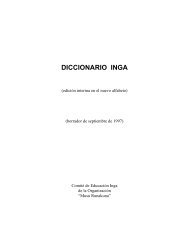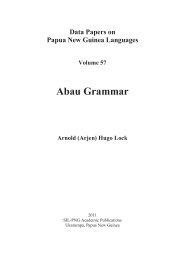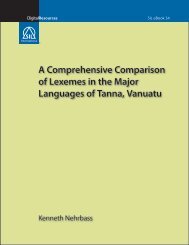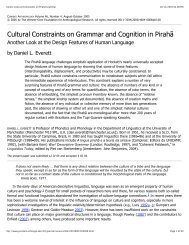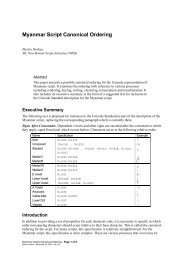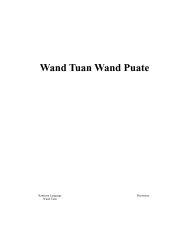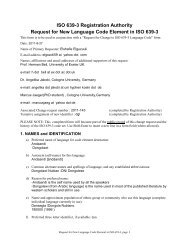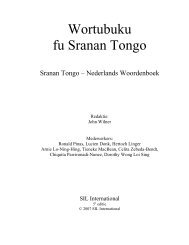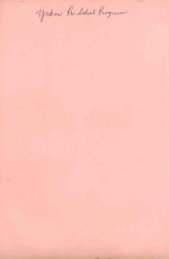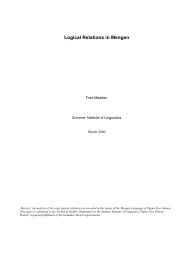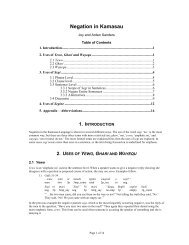Doing Chumburung songs—A taxonomy of styles Gillian Hansford ...
Doing Chumburung songs—A taxonomy of styles Gillian Hansford ...
Doing Chumburung songs—A taxonomy of styles Gillian Hansford ...
You also want an ePaper? Increase the reach of your titles
YUMPU automatically turns print PDFs into web optimized ePapers that Google loves.
on, Saturday, is Kwame̱e̱. He is also called Dɔŋkɔ because his mother went to<br />
consult a local god during pregnancy to ensure his survival.<br />
Example 1<br />
Ane̱ e̱ gya mo̱ ̀ se̱ ooo<br />
Kwame̱e̱ Dɔŋkɔ eee.<br />
Tɛm biyara 4<br />
ane̱ e̱ gya mo̱ ̀ se̱,<br />
Ogyi-e̱-gye̱-atɔ eee.<br />
We will follow him ooo<br />
Kwame Donkor eee.<br />
Every time<br />
we will follow him,<br />
A child is wealth eee.<br />
This song will be sung very many times in succession, before the drummer<br />
makes a change in rhythm and the singers know they should go to another song.<br />
The eee and ooo are “pause, sob or end particles” (Nketia 1955: 75), that is,<br />
variable syllables that can be tacked onto a line in songs. They are one type <strong>of</strong><br />
vocable that is used, that is, words related to form rather than meaning. There<br />
does not seem to be a phonological rule governing these end particles, for<br />
instance one would expect that the eee would follow words ending in e or e̱, but<br />
the songs show this is not always true. In other songs an eee can even interrupt a<br />
phrase.<br />
In the next song (Example 2), although the basic chorus is repeated many times,<br />
each verse can be addressed to a different group <strong>of</strong> people. Each new<br />
introductory phrase will need to be fitted into the time available (Nketia<br />
1974:179). The song was again sung in Kumundi, but in verse 2 they used the<br />
name <strong>of</strong> the original part <strong>of</strong> that town, Brai (not to be confused with other towns<br />
called Borai).<br />
4 Twi sounds such as biyara are <strong>of</strong>ten employed both in songs and normal speech for certain expressions<br />
which have a perfectly good counterpart in <strong>Chumburung</strong>. Likewise there are some loan words from<br />
English.<br />
7



